Overdose of blood pressure medication 70 times
On April 23, information from Can Tho Central General Hospital said that doctors from the Intensive Care - Anti-Poison Department saved the life of a patient who overdosed on antihypertensive drugs with symptoms of severe shock and multiple organ failure. Doctors had to use ECMO (extracorporeal membrane oxygenation) artificial heart-lung technique.
Previously, the female patient LHTL, 46 years old, residing in Can Tho City, was transferred to Can Tho Central General Hospital by the front line in a state of rapid pulse and low blood pressure. The patient's family said that the patient had a history of high blood pressure and was prescribed daily medication.
After 8 days of ECMO treatment, the patient gradually regained consciousness, vital signs were stable, and the ventilator was removed and the endotracheal tube was removed.
PHOTO: D.T
24 hours before being admitted to the hospital, the patient took about 140 Amlodipine 5 mg tablets at the same time (calcium channel blocker antihypertensive drug), then had symptoms of severe dizziness and vomiting and was taken to Hau Giang Provincial General Hospital before being transferred to a higher level.
According to recommendations, the usual starting dose of Amlodipine is 5 mg once daily, which can be increased to a maximum dose of 10 mg depending on the response of each patient. Thus, the above patient has overdosed at least 70 times.
Immediately after being admitted to Can Tho Central General Hospital, the patient was transferred to the Intensive Care - Anti-Poison Department in a severe condition with low blood pressure, requiring high doses of vasopressors, severe metabolic acidosis, multiple organ failure. The patient was actively treated according to an intensive regimen and continuous blood filtration to balance acid-base and stabilize hemodynamics.
Despite timely intervention, the patient's condition continued to worsen, with respiratory failure and impaired consciousness, requiring endotracheal intubation and mechanical ventilation. Blood pressure continued to decrease despite high doses of vasopressors. Faced with refractory shock and a fatal prognosis, the doctors of the Intensive Care and Anti-Poison Department decided to perform ECMO, which is considered the last resuscitation measure to save the patient's life.
ECMO intervention team treats patients
PHOTO: D.T
After 6 days of ECMO, the patient's clinical condition began to show signs of improvement. In parallel, the patient also received plasma exchange, continuous blood filtration, protein infusion, nutrition, etc. On the 8th day, the patient's paraclinical indicators and clinical condition improved significantly and there was an indication to stop ECMO, continuing the intensive resuscitation process. The patient then gradually regained consciousness, vital signs stabilized, was weaned off the ventilator, extubated and transferred to the Department of Internal Medicine and Respiratory Medicine for continued monitoring, treatment and care.
Dangerous complications
According to specialist 2 Duong Thien Phuoc, Head of the Department of Intensive Care - Anti-poisoning, overdose of calcium channel blockers can lead to serious heart dysfunction. Overdose of calcium channel blockers can cause heart failure, vasodilation and hyperglycemia.
According to Dr. Phuoc, before being assigned ECMO, patients often have undergone many intensive medical treatments and other intensive support but without results. Cases that do not respond to medical treatment need to be evaluated early at centers capable of implementing ECMO techniques. This is considered the last chance to resuscitate and save the patient's life.
Source: https://thanhnien.vn/cuu-benh-nhan-uong-cung-luc-140-vien-thuoc-ha-huyet-ap-185250423162712326.htm


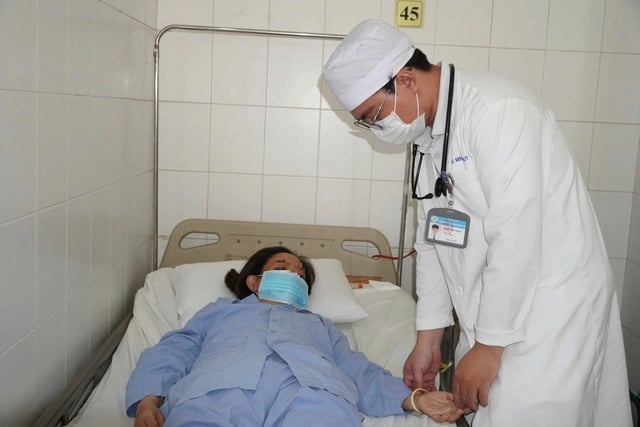
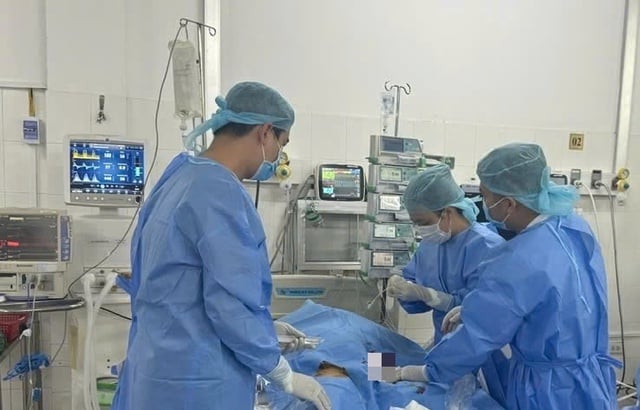

![[Photo] 60th Anniversary of the Founding of the Vietnam Association of Photographic Artists](/_next/image?url=https%3A%2F%2Fvphoto.vietnam.vn%2Fthumb%2F1200x675%2Fvietnam%2Fresource%2FIMAGE%2F2025%2F12%2F05%2F1764935864512_a1-bnd-0841-9740-jpg.webp&w=3840&q=75)
![[Photo] National Assembly Chairman Tran Thanh Man attends the VinFuture 2025 Award Ceremony](/_next/image?url=https%3A%2F%2Fvphoto.vietnam.vn%2Fthumb%2F1200x675%2Fvietnam%2Fresource%2FIMAGE%2F2025%2F12%2F05%2F1764951162416_2628509768338816493-6995-jpg.webp&w=3840&q=75)



![[Video] Dong Do Hospital celebrates 15 years of operation](https://vphoto.vietnam.vn/thumb/402x226/vietnam/resource/IMAGE/2025/12/06/1764980267666_img-2287-5359-png.webp)



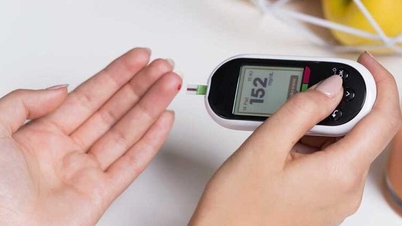

![[Infographic] Air pollution and recommendations from the Ministry of Health](https://vphoto.vietnam.vn/thumb/402x226/vietnam/resource/IMAGE/2025/12/05/1764950568593_screen-shot-2025-12-05-at-222015-png.webp)
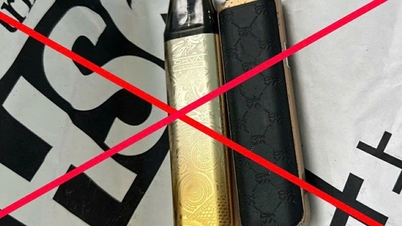






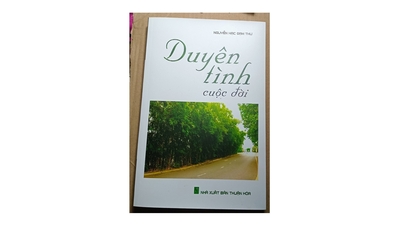








































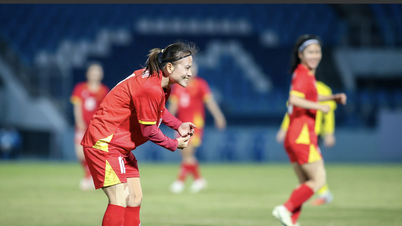








































Comment (0)